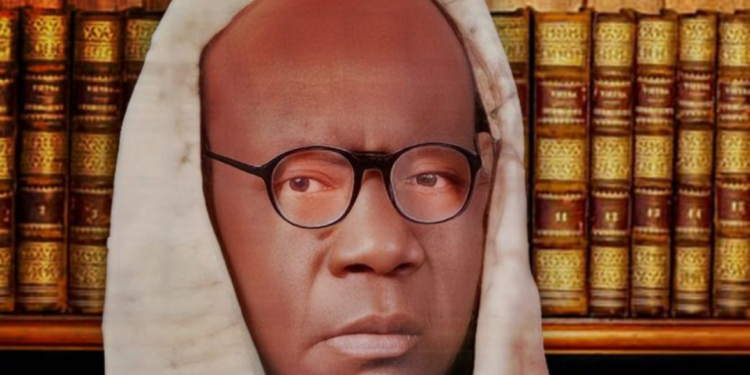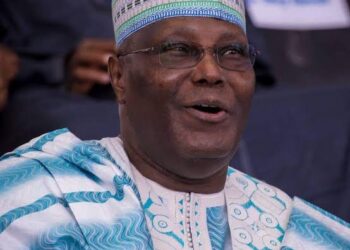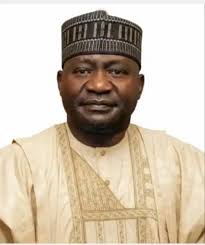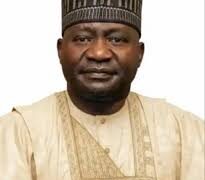President Bola Ahmed Tinubu has expressed profound grief over the passing of Justice Emmanuel Obioma Ogwuegbu, a former Supreme Court judge who made significant contributions to Nigeria’s legal system during his long and distinguished career. Tinubu, in a statement issued by his Special Adviser on Information and Strategy, Bayo Onanuga, paid tribute to Justice Ogwuegbu’s remarkable legacy, extending his condolences to the family, the judiciary, and the legal community at large.
Born in 1933 in Amainyi, Ihitte-Uboma Local Government Area of Imo State, Justice Ogwuegbu’s judicial career spanned over five decades, during which he became known for his wisdom, fairness, and commitment to justice. President Tinubu noted that Justice Ogwuegbu’s rulings, particularly at the Supreme Court, played a critical role in shaping Nigeria’s legal landscape, leaving a lasting impact on both the bar and the bench. Tinubu described the late jurist as a mentor to many judges and lawyers across the country, whose influence would be felt for generations to come.
Throughout his career, Justice Ogwuegbu presided over numerous landmark cases that addressed complex issues such as federalism, university autonomy, banking regulations, and individual rights under the Nigerian Constitution. His judgements have become foundational references in Nigerian jurisprudence, guiding legal interpretations and setting precedents for future cases. Tinubu noted that Justice Ogwuegbu’s unwavering commitment to upholding the rule of law and maintaining judicial integrity marked him as one of the most respected figures in Nigeria’s legal history.
President Tinubu particularly acknowledged Justice Ogwuegbu’s pivotal role in several historic judicial decisions that have continued to influence the country’s legal framework. “Justice Ogwuegbu’s decisions on matters of constitutional importance, including federalism and the autonomy of educational institutions, have become crucial pillars of our legal system,” Tinubu stated. The President underscored that the jurist’s deep understanding of the law and his balanced approach to justice earned him a reputation as a fair and impartial arbiter in the court.
In addition to his tenure on the Supreme Court, Justice Ogwuegbu served as the President of the Nigerian Institute of Advanced Legal Studies, where he contributed to the advancement of legal education and research in Nigeria. His commitment to nurturing future generations of legal professionals was evident through his mentorship and leadership roles, which helped shape the careers of many who have gone on to become prominent figures in the legal field.
Justice Ogwuegbu also played a significant role in Nigeria’s transition to democracy. Following the country’s return to civilian rule in 1999, he was appointed to chair the Judicial Commission of Inquiry that investigated human rights abuses perpetrated during the military regime. His leadership in this capacity was instrumental in uncovering abuses and recommending reforms aimed at strengthening the country’s human rights framework. President Tinubu remarked that Justice Ogwuegbu’s efforts during this critical period showcased his dedication to justice and his commitment to holding power to account.
Reflecting on the late jurist’s life and career, President Tinubu expressed admiration for Justice Ogwuegbu’s dedication to the principles of justice, integrity, and discipline. “His life of discipline, excellence, and unwavering commitment to the rule of law serves as an enduring example for all within the judiciary,” Tinubu noted. He emphasized that Justice Ogwuegbu’s legacy would continue to inspire future generations of legal practitioners, urging the judiciary to uphold the high standards set by the late Supreme Court Justice.
Tinubu also highlighted the broader significance of Justice Ogwuegbu’s contributions to the Nigerian legal system, noting that his judgements on key issues have become guiding principles for the interpretation of the Constitution. “His decisions have shaped the course of our legal history and will continue to serve as reference points in the pursuit of justice in Nigeria,” Tinubu said, adding that the late jurist’s body of work has left an indelible mark on the country’s legal landscape.
The President offered prayers for the family of the late Justice, expressing hope for divine comfort in their time of mourning. He also extended his sympathies to members of the legal profession who have lost a mentor and a guiding light. “Justice Ogwuegbu’s contributions to the judiciary were immeasurable, and his absence will be deeply felt by all who had the privilege of knowing him and learning from his wealth of experience,” Tinubu stated.
In his closing remarks, President Tinubu called on the judiciary to honour the memory of Justice Ogwuegbu by upholding the values he stood for throughout his career. “Let us continue to strive for justice, fairness, and integrity in all our endeavours, as Justice Ogwuegbu did,” Tinubu urged. He emphasized that the best way to pay tribute to the late jurist’s legacy is to ensure that the principles of justice and equity remain at the forefront of Nigeria’s legal system.
Justice Ogwuegbu’s passing marks the end of an era for Nigeria’s judiciary, as the nation bids farewell to a man who dedicated his life to the pursuit of justice and the strengthening of the legal profession. His legacy, however, will live on through his landmark rulings, his mentorship of young legal minds, and his enduring influence on the interpretation of the law in Nigeria. As the country reflects on his life and achievements, it is clear that Justice Ogwuegbu’s contributions will continue to shape the Nigerian legal system for years to come.





































